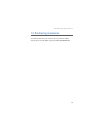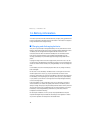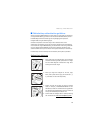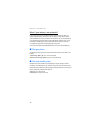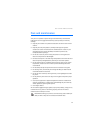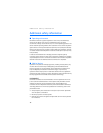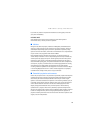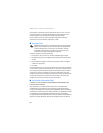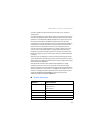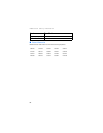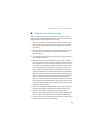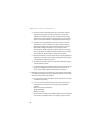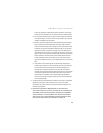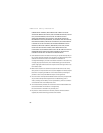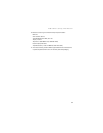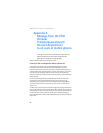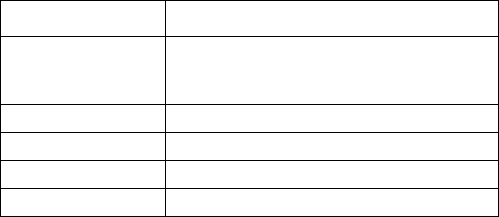
Additional safety information
81
the public, regardless of age and health and to account for any variations in
measurements.
The exposure guidelines for mobile devices employ a unit of measurement known
as the Specific Absorption Rate or SAR. The SAR limit stated in the international
guidelines is 2.0 watts/kilogram (W/kg) averaged over ten grams of tissue. Tests
for SAR are conducted using standard operating positions with the device
transmitting at its highest certified power level in all tested frequency bands. The
actual SAR level of an operating device can be well below the maximum value
because the device is designed to use only the power required to reach the
network. That amount changes depending on a number of factors such as how
close you are to a network base station. The highest SAR value when tested
according to international testing procedures for use at the ear for device type
RH-66 is 0.75 W/kg. Your phone’s device type is listed on the label located under
the battery.
SAR values may vary depending on national reporting and testing requirements
and the network band. Use of device accessories and enhancements may result in
different SAR values. Additional SAR information may be provided under product
information at www.nokia.com.
USA and Canada: The SAR limit of USA (FCC) and Canada (IC) is 1.6 W/kg
averaged over one gram of tissue. Device type RH-66 has also been tested
against this SAR limit. The highest SAR value reported under this standard during
product certification for use at the ear is 1.20 W/kg and when properly worn on
the body is 1.03 W/kg. Information about this device can be found on the FCC's
website at http://www.fcc.gov/oet/fccid by searching the equipment
authorization system using FCC ID: QMNRH-66.
■ Technical information
Feature Specification
Dimensions Width 42.2 mm
Length 102.4 mm
Depth 21.5 mm
Weight 88 g with BL-6C Li-Ion Battery
Wireless networks CDMA 1900
Volume 70 cc
Frequency range (Tx) PCS: 1851.25–1908.75 MHz



